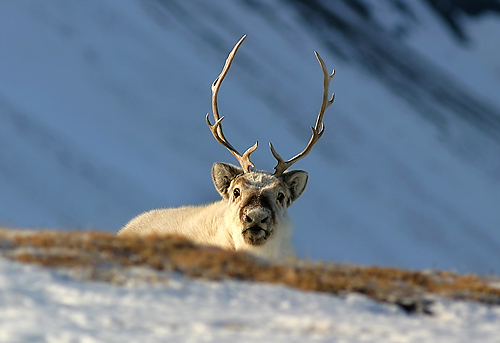We're open daily! View holiday hours
Science News
No Internal Clocks in Reindeer
March 15, 2010

You may be tired this morning from getting up an hour earlier due to Daylight Savings Time, but Arctic reindeers aren’t.
According to a new study reported online on March 11th in Current Biology, reindeers don’t have the same internal clock that other animals do.
The circadian clock or rhythm is the roughly 24-hour cycle that drives most living things, affecting our sleeping, waking, body temperature and hormones. The circadian clock is responsible for jet lag and that feeling you had when the alarm went off this morning.
Circadian clocks are not only found in mammals, but also plants, fungi, bacteria and insects. (Last fall, Science in Action produced a story on how monarch butterflies use circadian clocks inside their antennae to find their way to Mexico each year. You can view it here.)
Daylight does adjust these rhythms, but it’s the internal mechanism that does the driving. Except in reindeer.
"In reindeer, it is this clock element that seems to be missing," said Andrew Loudon of the University of Manchester and one of the authors of the study. Light seems to be doing all of the work.
Norwegian and British researchers studied reindeer living in Norway, over 300 miles north of the Arctic Circle. During parts of the year in the Arctic, the sun does not set; at other times, it's just the opposite. It appears that reindeer have simply adapted to this light cycle.
Studying reindeers’ levels of the hormone melatonin, scientists found no internal rhythm, the levels simply responded to light and dark. “Our findings imply that evolution has come up with a means of switching off the cellular clockwork," Loudon said.
The researchers say that the findings initially came as a surprise, but they now suspect that similar patterns will be uncovered in other Arctic animals.
Creative Commons image by Marius Fiskum